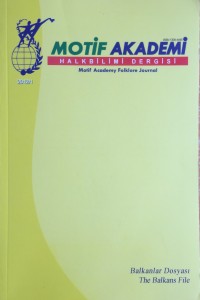Abstract
Subsequent to the collapse of the former Yugoslavia, Bosnia Herzegovina comes face to face with a tragic and second to none destruction assault. The assaults are not only restricted with the butchery of the innocent Bosnian people but also embrace the destruction of connection and the relation of the people with their past, yesterday, cultural heritage. These butchery and the assaults as named the urbicide have focused on the destruction of all the spiritual, cultural, social, and historical values of the country, and as a result tens of sites and the buildings such as the mosques, graveyards, libraries and the museums have got demolished and destroyed. This study has got prepared so as to focus on the urbicide tragedy experienced in Bosnia-Herzegovina in 1992-1995 period
Keywords
Abstract
Eski Yugoslavya’nın dağılmasının hemen ardından Bosna-Hersek tarihte eşine az rastlanan bir yok etme saldırısıyla karşı karşıya gelir. Bu durum insanların ortadan kaldırılmasıyla sınırlı bir etnik temizlik hareketi değil doğrudan o insanların geçmişleriyle, dünleriyle ve kültürel mirasla bağlarını ortadan kaldırmaya yönelik bir yok etme girişimdir. Literatüre kentkırım olarak geçen bu saldırılar ülkenin bütün manevi, kültürel, sosyal ve tarihi değerlerini yok etmeyi amaçlamış ve sonuçta müzelerden kütüphanelere, mezarlıklardan camilere onlarca mekân yok edilmiş veya kullanılamayacak derecede tahrip edilmiştir. Bu çalışma 1992-1995 döneminde Bosna-Hersek’te yaşanan bu kentkırım trajedisine ışık tutmak amacıyla hazırlanmıştır.
Keywords
Details
| Other ID | JA65VJ77KR |
|---|---|
| Journal Section | Articles |
| Authors | |
| Publication Date | December 1, 2012 |
| Submission Date | December 1, 2012 |
| Published in Issue | Year 2012 Volume: 5 Issue: 9 |



